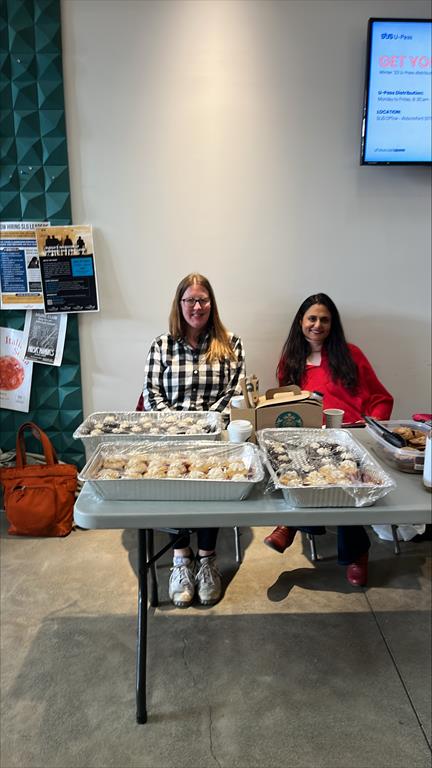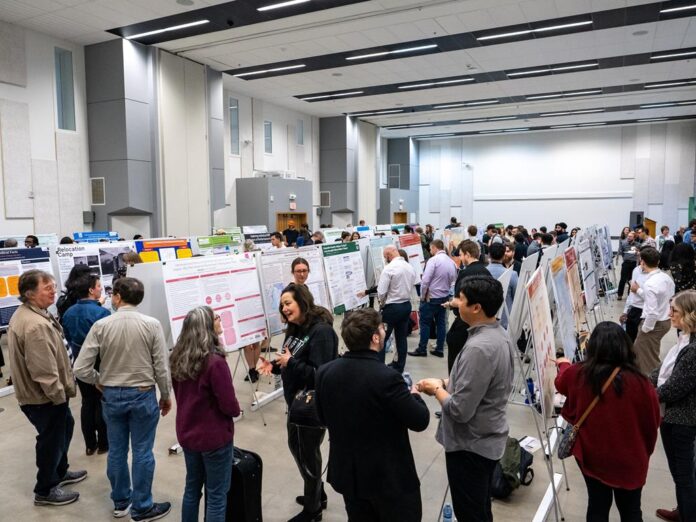UFV’s annual Student Research Day, an event where students share their research projects via Student Microlectures with “UFV academics, students, family and friends, industry and community leaders, and other members of the Fraser Valley community,” took place on April 4 at Evered Hall. Participating students have their projects judged by UFV professors, and the students who get the highest scores receive an award and $200. It was at Student Research Day that a few people had a bake sale.
The goal of this bake sale was to raise funds for Nepalese who are hospitalised from HIV complications. Due to the monetary expenses associated with HIV treatment in Nepal, many Nepalese who are hospitalised due to HIV struggle to pay for treatment on their own.
Kiran Shergill, a fourth year BSW student, led the bake sale. It was a practicum duty assigned by Rita Dhungel, assistant professor within the School of Social Work and Human Services (SWHS) program. Dhungel has a research background in social justice, and she is particularly concerned with supporting both Nepalese living with HIV, and Nepalese who have survived human trafficking. She also engages in similar actions for Albertans. Gina Johnson, a third year BSW student who represents the Student Social Work Association (SSWA) as its president, also assisted with hosting duties.

Students brought cupcakes, cookies, cinnamon buns, and coffee to sell. The fundraiser featured stories and some words of encouragement that were shared via PhotoVoice. One person shared that while they were receiving HIV treatment, the doctors recommended they ate a diet with nutritious foods like fruit. However, because of the high cost of fruit, it was not possible for them to follow their doctor’s orders. Another person had written in their PhotoVoice that they wanted to help “change the world” by “spread[ing] … light into the lives of trafficked survivors and help[ing] them with their reintegration.”
A total of $210 was made in donations. As Shergill, Dhungel, and Johnson sold baked goods throughout the day, they also engaged in conversations with their customers (consisting of other students, as well as UFV staff) regarding the prevalence of HIV and human trafficking in Nepal. These conversations encouraged customers to think about how they could support all people with HIV, but particularly those in Nepal, moving forward.
A few adjustments could be made at next year’s Student Research Day in order to cater to each customer’s individual needs; there was a high demand for more payment options, such as debit and credit. Many students could not eat the baked goods as there were no gluten-free or vegan options for them. Despite these issues, many students and faculty were interested in learning about HIV and human trafficking in Nepal.


